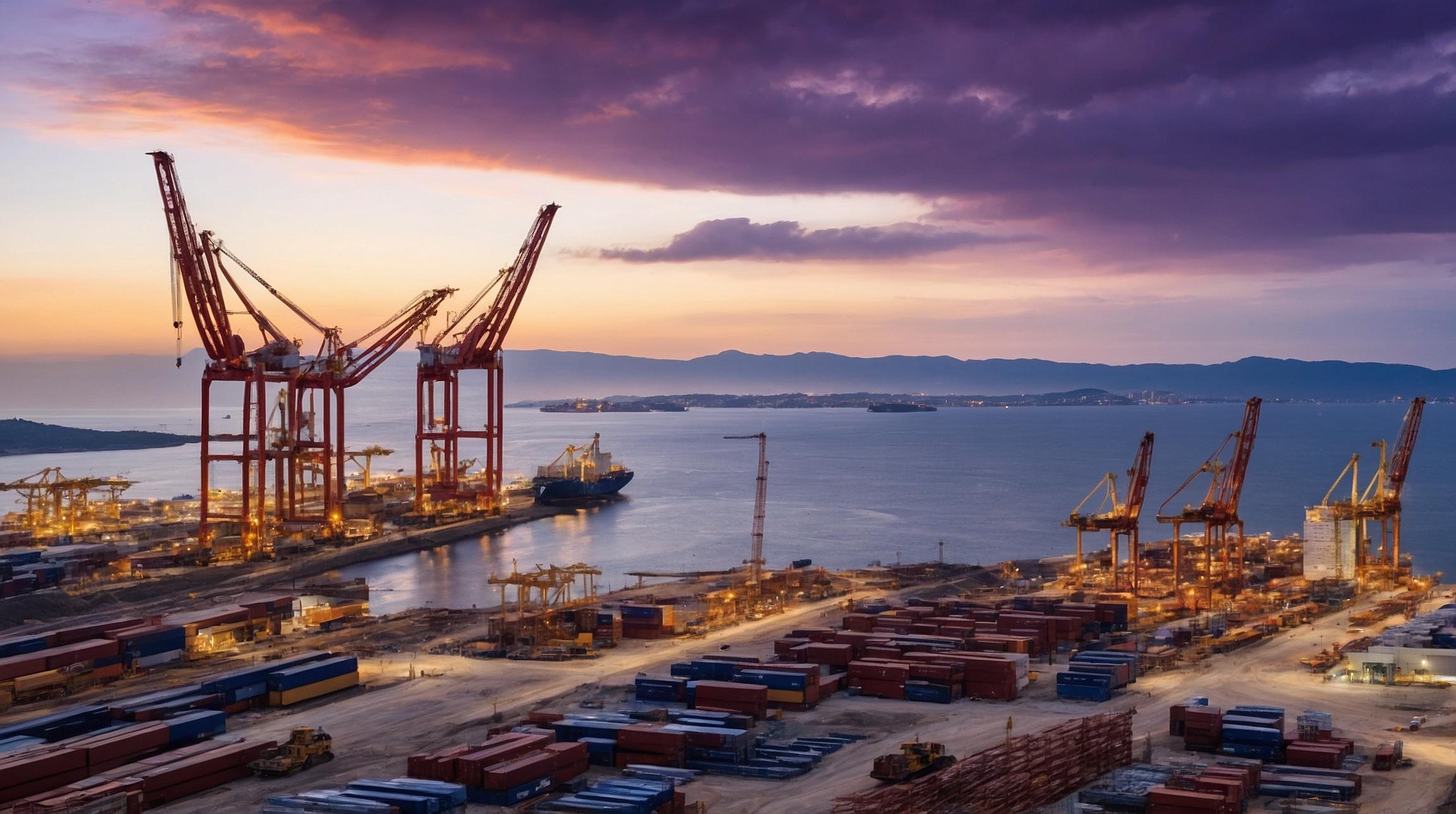Georgia Looks to China for Investment; Critics Fear Turn from West
Chinese investment in Georgia is set to increase significantly, as a Chinese-led consortium has been awarded the contract to develop a deep-sea megaport on Georgia’s Black Sea coast. This move is part of Beijing’s ‘Middle Corridor’ trade route to Europe. However, critics are concerned that the Georgian government is putting its economy and democracy at risk by distancing itself from Western partners.
Anaklia Port Project
Anaklia, a small coastal resort on Georgia’s Black Sea shoreline, is poised for a major transformation. The plans involve developing it into a port capable of handling large volumes of containers and cargo. The Georgian government has awarded a 49% stake in this project to a Chinese-Singaporean consortium. The remaining 51% is retained by the Georgian state.
Political Climate and Concerns
The announcement came in the wake of a contentious “foreign agent” law, akin to legislation in Russia, which has been criticized as a clampdown on Western-funded NGOs and independent media. This law sparked anti-government protests, with fears that the ruling “Georgian Dream” party is veering away from a Western-aligned future in the EU.
“That also coincides with the very direct and open anti-Western rhetoric we've been hearing from the government,” said Giga Bedineishvili, a Georgian financier. “The speculation is that the Georgian government is thinking about the possibility of losing Western investment and compensating for it with money from Russia and China.”
Government’s Defense
The Georgian government denies any intention to turn away from the West and maintains its goal of joining the EU by 2030. Prime Minister Irakli Kobakhidze defended the decision to award the Anaklia port contract to the consortium led by the China Communications Construction Company, emphasizing the company’s extensive experience.
Previous Attempts and Financial Concerns
The Anaklia port project, initially set to be built by an American-Georgian consortium, faced setbacks when the government canceled the $2.5 billion deal in 2020. The previous consortium accused the ruling party of deliberately sabotaging the project.
Potential Debt Trap
Tinatan Khidasheli, a former Georgian defense minister, expressed concerns over a potential “debt trap.” She questioned where the Georgian government would find funding for its 51% stake and suggested the money might also come from China. “We could end up like Sri Lanka or the Philippines, who had similar financial troubles,” Khidasheli warned.
Broader Implications
The China Communications Construction Company, currently under U.S. sanctions for its activities in the South China Sea, is leading the Anaklia port consortium. The firm has a history of corruption scandals and was banned from World Bank contracts until 2017.
China has been visibly investing in Georgia, including the development of the Hualing Tbilisi Sea Plaza, a large mall and housing complex, and involvement in highway constructions. Georgia signed a strategic partnership with China in 2023, aligning itself with Beijing’s Belt and Road Initiative.
Investment Reality
Despite Georgia’s outreach to Beijing, direct Chinese investment remains relatively small, just over $47 million in 2023. European and American investments still dwarf Chinese investments, with Britain being the largest single investor at $392 million.
“When people drive throughout the country, they see all these Chinese signs from different companies. It creates an illusion of significant Chinese investment. But in reality, it’s Georgian state budget money awarded to the contractors,” said Tinatan Khidasheli of Civic IDEA.
Strategic Concerns
Georgia’s government believes China could become its leading trading partner, but experts urge caution. “China and Russia strategically invest to gain political influence,” warned Bedineishvili.
A NATO official also expressed concerns about China’s strategic interest in developing the port, highlighting its long-standing aim to influence major overseas infrastructure projects. The Black Sea remains an area of strategic importance to NATO.
Key Takeaways:
- Anaklia port project aims to boost Georgia’s trade capacity.
- Criticism about shifting from Western to Chinese investments.
- Fears of financial debt traps and widening political influence of China in the region.
- Long-term strategic implications for NATO and regional geopolitics.
By balancing Georgia’s economic ambitions with political caution, the future will reveal the true impact of these strategic decisions.













